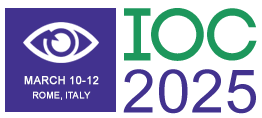Title : Evaluating the efficacy of AI chatbots in triage and referrals for ophthalmic conditions
Abstract:
Design -Cross-sectional study Setting - Single center Participants - Ophthalmology trainees, OpenAI ChatGPT (GPT 3.5), Webmd, and Google Gemini Method Sixty Clinical Vignettes representating common ophthalmic conditions from Tertiary Care OPD were developed and a standardized pathway of prompt was presented to each tool. Result The physician respondents,Gemini Chat, ChatGPT nd WebMD listed the appropriate diagnosis among the top three suggestions in 57 (95%), 55(93%), 53(91%), and 20 (33%) cases, respectively. Conclusion This paper aims to provide a comprehensive overview of AI’s performance in triage and referrals for ophthalmic conditions, addressing the current landscape, challenges, and the promising path forward. It serves as a valuable resource for ophthalmologists, researchers, and healthcare professionals seeking to embrace the potential of artificial Intelligence.
Clinical Implication – Access to human expertise for affordable and efficient triage and referrals of ophthalmic conditions is inconsistent. With recent advancements in publicly available artificial intelligence (AI) chatbots, individuals may turn to these tools for triage and referrals of ophthalmic complaints. There’s a growing gap between the need for eye care and readily available ophthalmologists. This is where AI chatbots come in as a potential solution. Studies have shown that some AI chatbots, particularly large language models (LLMs), can perform well in.
Triaging eye conditions: By asking you questions about your symptoms, these chatbots can suggest potential diagnoses, similar to how a doctor might during an initial consultation. Providing referrals: Based on the triaged condition, some AI chatbots can recommend if you need immediate medical attention or if scheduling an appointment with an ophthalmologist is appropriate.
Here's a caveat: while some AI chatbots are promising, it’s important to remember they are not a replacement for a real doctor. Their accuracy is still under development, and they might miss crucial details. They cannot perform eye examinations or provide treatment. However, AI chatbots can be a valuable first step, especially for.
Initial guidance: Helping you understand the potential cause of your eye issue.
Triage urgency: Advising you whether to seek immediate medical attention. Overall, AI chatbots hold promise for improving access to basic ophthalmic guidance, but they should be used alongside consultations with qualified.



